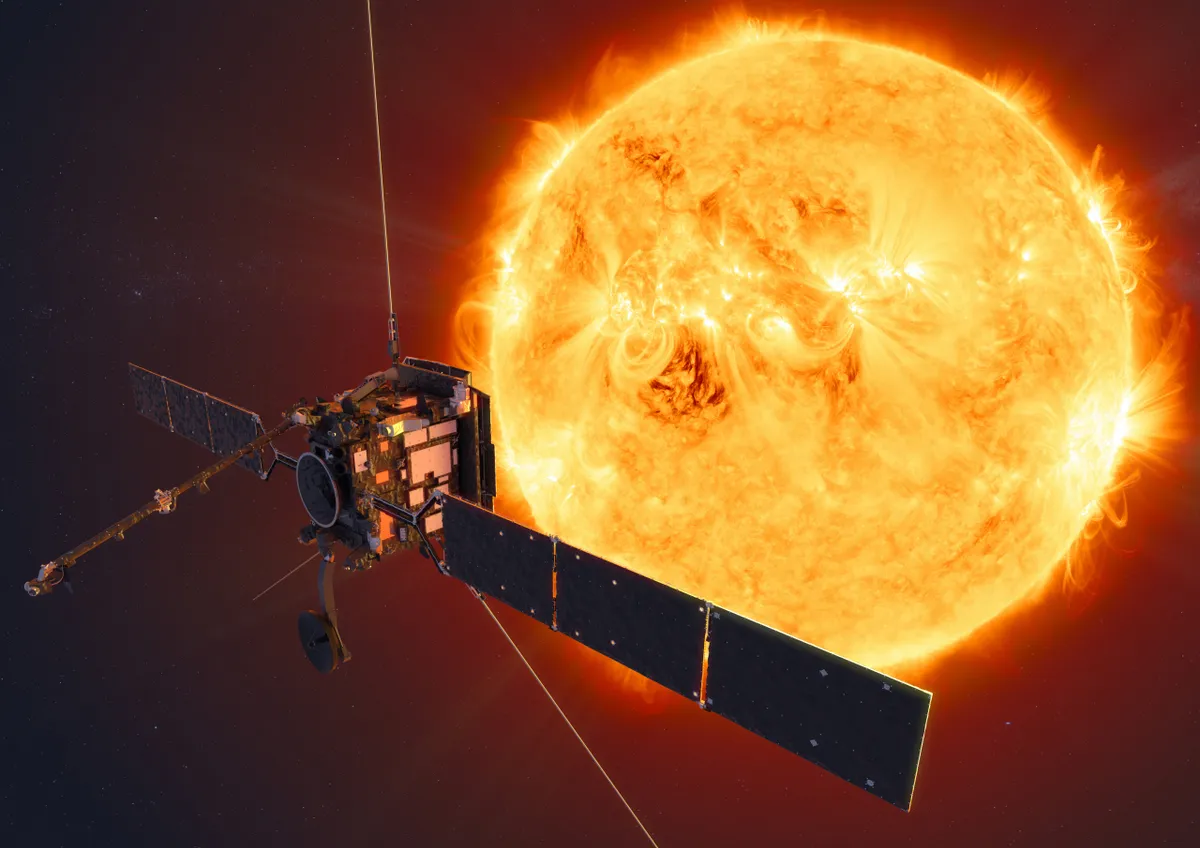One question that hangs over the UK’s involvement with the European Space Agency is its role in European spaceflight after Brexit, once the country leaves the European Union. Will the UK remain a member of ESA? Will it still contribute resources and expertise to Europe's place in space? What about British astronauts flying under the ESA banner?
Questions surrounding the UK's EU exit and how this will affect its role within ESA are particularly of interest because the UK is already involved in several key aspects of the space agency's plans over the next few years.
Read more about UK involvement in ESA missions:
- How Solar Orbiter will study the surface of the Sun
- Tim Peake discusses the future of UK and ESA spaceflight
- How the ExoMars 2020 rover will search for signs of life on the Red Planet
“A significant piece of UK hardware will go to the ISS next year: a high-speed communications data link that will enable a massive increase in the station’s data rate,” says David Parker, Director of Human and Robotic Exploration at the European Space Agency.
“The UK is also interested in contributing technologies to the Lunar Gateway, but those competitions are currently ongoing. Then on Mars, the UK has particularly expressed a wish to take a lead on ESA's Sample Fetch Rover. There’s a strong interest in getting involved in the analysis when the sample comes back as well.
"And then there’s lunar communications, and this is something the UK is explicitly interested in, providing services that ESA will need for exploration, as well as the UK angle of providing commercial services in space.

"As a result of the decisions taken at ESA's ministerial we will continue operating at the ISS until 2022. ESA astronaut Tomas Pesquet will make a second flight to the station, to be followed by the other astronauts in the astronaut corp [including UK astronaut Tim Peake]. Our plan is to undertake missions with all of the astronauts by 2024, which is the current nominal end of the space station."
But does Parker think the UK leaving the EU will impact on its role within ESA?
"ESA is an intergovernmental organisation, governed by an international treaty that’s in UK law. It was approved by Parliament back in the 1970s. Nothing has changed. So that’s a convention that governs ESA in the law of all of these different countries.
"There are also several states that are part of ESA but which are not in the EU. Canada is an associate member. So from a formal point of view, Brexit doesn’t effect the UK’s participation with ESA.
"Indeed, the UK has significantly increased its participation in ESA by about 15% of the optional programmes. So we take that as a positive sign of support form the UK."

But although ESA is a separate entity from the EU, there are several projects that the two run jointly: notably the Copernicus initiative, which is an EU/ESA Earth observation programme based on data gathered by satellites as well as ground-based airborne and seaborne systems.
“The UK has subscribed pretty well to Copernicus and will be participating in a strong manner,” says Josef Aschbacher, ESA's Director of Earth Observation Programmes.
“The UK is also a big user of Copernicus data and will remain so. We have a mechanism where the UK will continue with Copernicus until 2021, and then we’ll see where it stands with regards to participating in an EU programme.”
